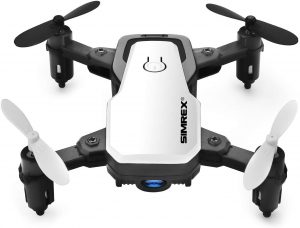Table of Contents
INTRODUCTION
If you’re a drone pilot, one of the most important things when you purchase a new drone will be to have it registered. As tiring as this may sound, it is the law and was put in place to make sure that the entire national airspace is safe. Seeing as the number of drones in the sky has increased, it is an essential law that everyone will benefit from.
The particular drone registration requirements may differ based on the conditions or situation.
The first occurrence of the federal aviation administration requesting drone pilots registers their drone was in December 2015. The law implemented created simple guidelines for drone registration. These guidelines include, which drones are to be registered, who needs to register, and the fees that are to be paid for the process. By the end of the year 2019, over 1.5million drones were registered—most of these drones were recreational drones, and the rest were drones for professional use.
Registration of drones was temporarily stopped in 2017 after various groups of recreational drone users pleaded that the requirements went against the FAA modernization and reform act of 2012.
WHAT DRONES REQUIRE REGISTRATION
According to the Federal Aviation Administration guidelines, any drone that weighs less than 55 pounds and more than 0.55 pounds will need to be registered. Bear in mind that the weight restriction refers to the weight on takeoff, Meaning any accessory or payload will be taken into consideration in the weight classification. This law applies to commercial and recreational drone pilots.
Drone accessories and drones usually include their total mass as part of the descriptions, so the above rule should be easy to follow. The minimum limit, which is 0.55 pounds, is relatively low. Apart from mini-drones, almost all drones that are designed for flight outdoors will most likely weigh above the weight limit.
The drone registration rules have created an opportunity for a market of drones that weigh below the minimum weight for registration to avoid registration. This lets the drone pilots purchase a new drone and begin to fly it there and then, without going through the stress of registration. Mini drones and toy drones fall under this category, but they have lesser features than prosumer models have.
There’s an important exception to this law: the 0.55 weight limit only applies to drones used solely for recreational purposes and their pilots. The registration requirements for commercial drone pilots are more profound.
WILL YOUR DRONE REGISTRATION EXPIRE?
Your drone registration does have an expiry date. The Federal Aviation Administration drone registration only lasts for three years. There is no particular method for the renewal of drone registration yet due to the fact that the status of each drone registered from December 2017 was drawn out to December 2020, just after NDAA (National Defense Authorization Act) came into law. Drone pilots can log onto their accounts in FAA Drone Zone to re-print a recent registration certificate with an extension on the expiry date in case they need to document proof.
For drones that weigh above 55 pounds they are referred to as traditional aircraft and will not be protected by the FAA’s regulations for drone registration. Rather, the drone pilot will have to have the drone registered using a paper registration procedure that is a little more complex and stressful.
The FAA provides more details on registering a traditional aircraft on their page(aircraft registry page). The bottom line is that the aircraft’s value will need to be verified by producing details and information about the craft’s model, its engine type, and maximum takeoff weight. These can be verified when the submission of various affidavits has been made.
As a drone pilot, it takes more than a part 107 license to fly out a drone classified as a traditional aircraft. You can do so through the only legal way, which is by getting a section 333 exoneration. For this, the drone pilot will be required to have an Airman’s certificate with a recreational or sport level at least to be considered eligible,
CONCLUSION
Before you purchase a drone, you may want to know more about the registration process, and if you already have a drone, this should help you understand that you need to register it and the criteria for that.

